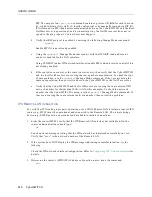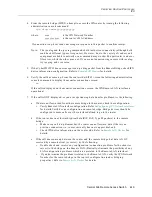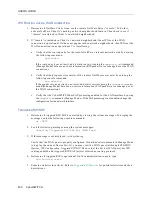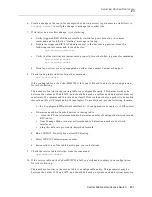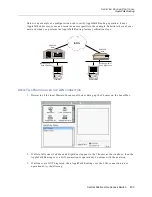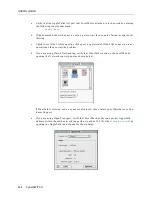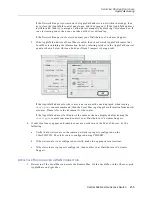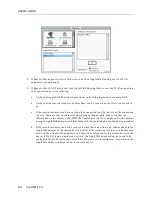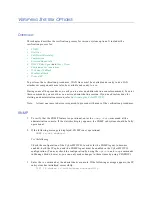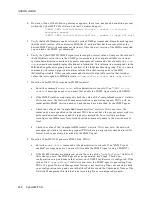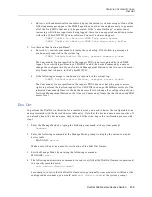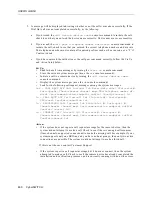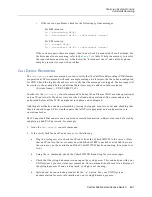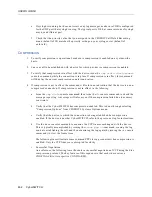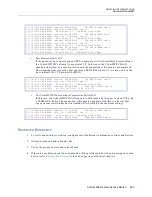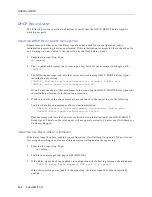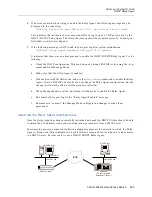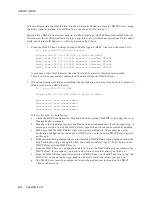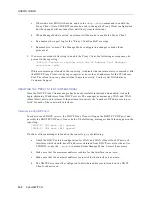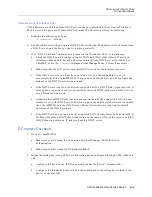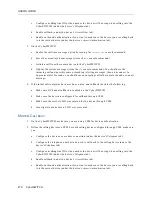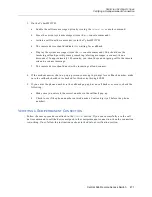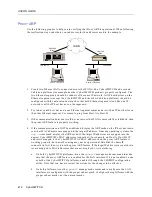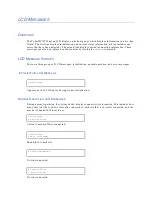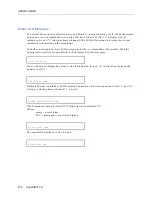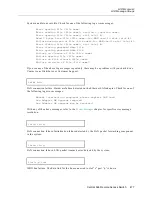
USER’S GUIDE
462 CyberSWITCH
e.
If syslogd is running but does not receive any log messages, make sure CDR is configured
for the UDP port that syslogd is using. The typical port is 514, but some versions of syslogd
may use a different port.
f.
Check that the priority value that you assigned in the CFGEDIT Call Detail Recording
menu (default of 38) matches the priority setting on your syslog server (default of
auth.info).
C
OMPRESSION
1.
To verify compression is operational, make sure compression is enabled on a system-wide
basis.
2.
Cause a call to be established with a device for which per-device compression is enabled.
3.
To verify that compression is in effect with the device, issue the
cmp stats <devicename>
console command while the connection is in place. If compression is in effect, this command
will display the current compression counters and ratios.
4.
If compression is not in effect, the command will return an indication that the device is a non-
compressed connection. If compression is not in effect, try the following:
a.
Issue the
cmp stats
console command then issue the
dr
console command to check the
message report log. A message will inform you if the compression failed due to memory
constraints.
b.
Verify that the CyberSWITCH has compression enabled. This is done through selecting
“Compression Options” from CFGEDIT’s Systems Options menu.
c.
Verify that the device to which the connection is being established has compression
enabled. If the device is another CyberSWITCH, refer to the previous step for instructions.
d. Use the trace console command to examine the CCP frames exchanged with the device.
This is typically accomplished by issuing the
trace ppp on
command, erasing the log
contents, establishing the call, and then examining the log again (by issuing the
dr
console
command) to view the frame trace.
The following traces illustrate some common PPP start-up scenarios when compression is
enabled. Only the CCP frames are excerpted for clarity.
•
Successful Negotiation
As a reference, the following trace illustrates a successful negotiation of CCP using the Stac
compression protocol. The key feature of this sequence is that each side receives a
CONFIG-ACK to its respective CONFIG-REQ.

